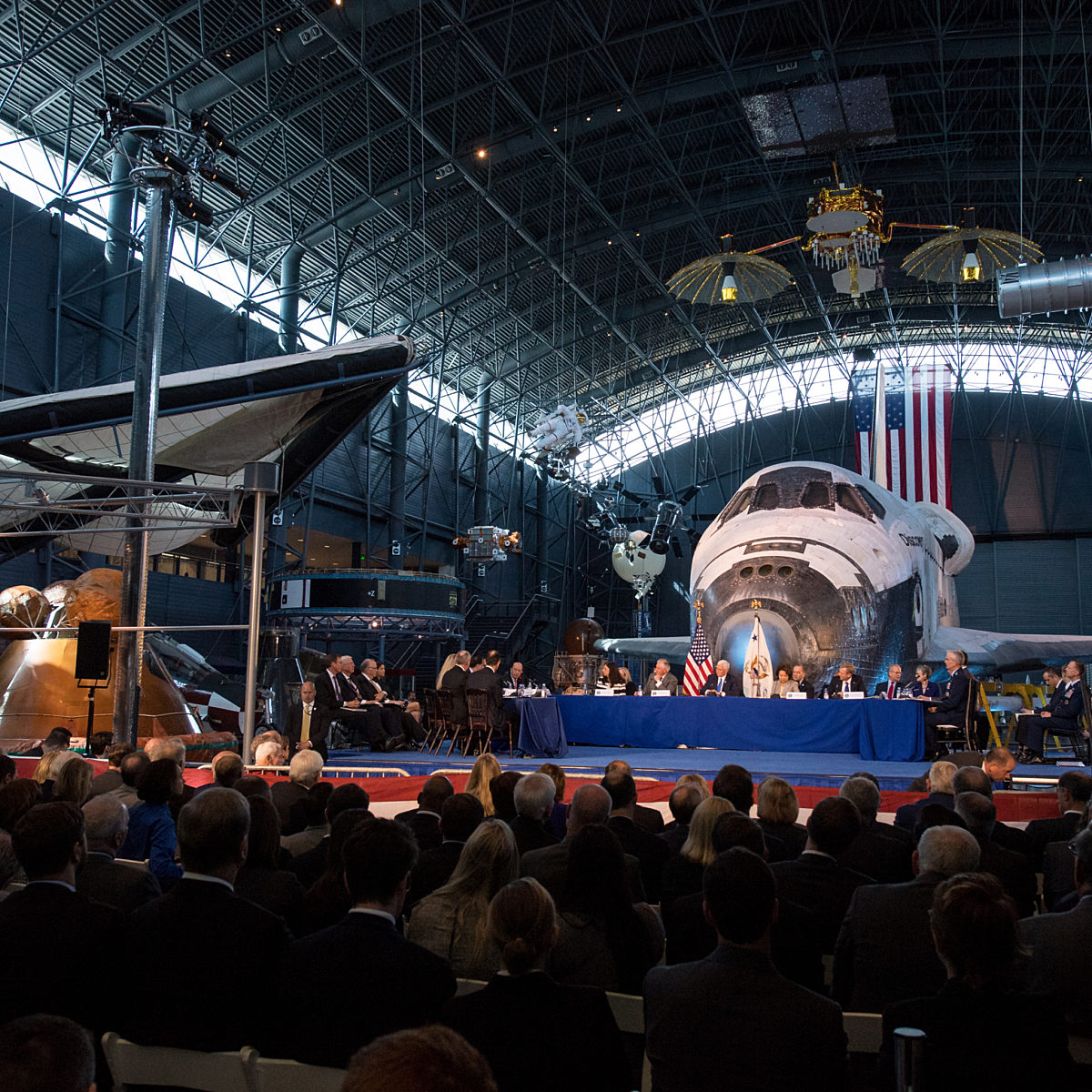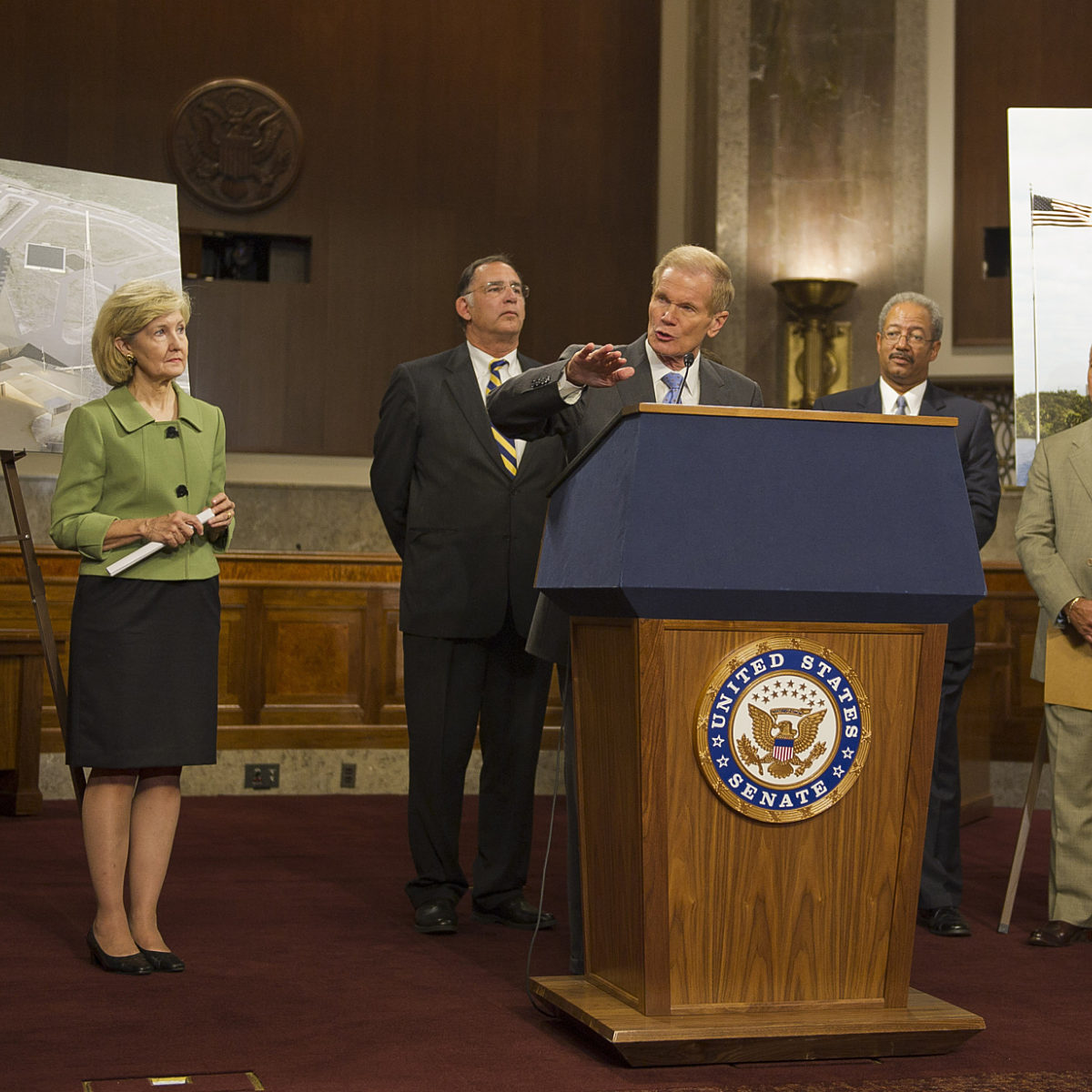Since 2002, Planetary Radio has visited with a scientist, engineer, project manager, advocate, or writer who provides a unique perspective on the quest for knowledge about our Solar System and beyond. The full show archive is available for free.
Search Planetary Radio
The White House’s proposed 2022 NASA budget is almost entirely great news, as is the announcement that two complementary orbiters will explore Venus.
NASA chose SpaceX’s Starship as the sole winner of its human lunar lander development contract in a move that may also take us closer to Mars.
It looks like former senator Bill Nelson will be NASA’s next administrator. Casey Dreier and Mat Kaplan talk about his nomination and other developments in Washington D.C., including The Planetary Society’s very successful Day of Action.
Elon Musk’s SpaceX nearly failed 15 years ago as it struggled to launch its first rocket. Eric Berger has written about this challenging early era and how it helped create today’s successful, innovative company.
Matt Hourihan of the American Association for the Advancement of Science joins Casey Dreier for a deep dive into the U.S. government’s funding of science research and development.
Casey Dreier and our special guest, former National Space Council chief of staff Jared Zambrano-Stout, consider the troubling events at the U.S. Capitol in this special episode.
Space historian Teasel Muir-Harmony argues in her fascinating new book that the Apollo lunar program was promoted as a triumph of, not for, all mankind.
With the United States election over, Casey Dreier and Mat Kaplan welcome back Planetary Society Chief of D.C. Operations Brendan Curry for a review of what may be in store for the U.S. space program.
Where would a Biden Administration take US space policy and NASA? Casey Dreier and space journalist Jeff Foust synthesize a best guess based on the available evidence.
The National Space Council’s Scott Pace talks with Casey Dreier about the current administration’s sweeping new strategy that integrates all elements of space development and exploration.
The Coalition for Deep Space Exploration’s Mary Lynne Dittmar talks with Casey Dreier about how and why spacefaring nations prioritize funding for space development and exploration.
How big is the space economy, and how big might it grow? Space policy expert Dr. Bhavya Lal brings the numbers down to Earth in a great conversation with Casey Dreier.
The safe arrival of SpaceX’s Crew Dragon at the International Space Station is a huge success for NASA and policymakers who gambled years ago on the value of commercial partnerships for the agency.
Philosopher James Schwartz shares his thoughts about the ethics of space exploration, commercialization, and settlement.
Join The Planetary Society’s policy team, including Bill Nye, for highlights of a members-only live briefing that shared our analysis of how the coronavirus pandemic may affect space exploration.
NASA’s fiscal year 2021 budget request contains lots of good news along with a few disappointments. How will Congress weigh in?
Casey and his guest discuss a bill working its way through the US House of Representatives that challenges the Artemis plan adopted by NASA for human exploration of the Moon and Mars.
Legislation signed by President Trump in December formally established the 6th branch of the U.S. armed services, the first such expansion in 72 years. What exactly will the new Space Force do?
As the 2010s come to a close, Marcia Smith, the founder of Space Policy Online, rejoins the show to explore the most significant and impactful space policy decisions of the 2010s.
How can a simple report—just words on a page—lead to creation of a spacecraft? We explore how a 2019 report on the need for a dedicated, space-based telescope to find threatening near-Earth asteroids motivated NASA to pursue that very mission.


 Explore Worlds
Explore Worlds Find Life
Find Life Defend Earth
Defend Earth




















